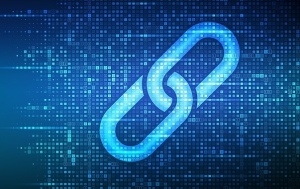From the November 2020 issue of HealthCare Business News magazine
By Dawn Cram
Advantages from implementing blockchain within healthcare are extensive. According to a 2018 Bisresearch study, implementation of blockchain in the healthcare industry could result in savings up to $100 billion annually by 2025. Blockchain technology can prevent data breaches, reduce the number of redundant treatments, improve research, and accelerate treatment development through greater accessibility. Expansive adoption can achieve improved population health and predictive medicine, factoring in regional, hereditary and genomic influences. Since blockchain is considered immutable, data can only be added and not modified or deleted, greater accuracy and reliance can be attained.
Less administrative work related to claims, billing and supply chain promise a significant cost reduction to providers and reduced total cost of care to patients and payers. Patient data added to the ledger, can create one universal health record for each patient, additionally allowing patients to control distribution and privacy.
Blockchain also providers a higher level of health data security than can be achieved with current, traditional system security measures. Multiple nodes across regions, countries or even worldwide, store copies of data and inherently ensure consensus in the linear-connected blocks, preventing exploitation of data. Implementation using smart contracts can manage permissions and availability at a granular level, supporting varied needs from the continuum of care for an individual patient, to the totality of worldwide public health agency monitoring and containing potential disease outbreaks, while maintaining personal health information protections.
Events of the past year emphasize healthcare’s urgent need to resolve current interoperability challenges. Of all blockchain’s potential benefits within the healthcare industry, perhaps the most promising is its capability for rapid acceleration to meet the Department of Health and Human Services’ Office of the National Coordinator for Health Information Technology (ONC) Shared Nationwide Interoperability Roadmap.
COVID-19 highlights the urgency of attaining a learning health system, the ultimate goal driving ONC’s Nationwide Interoperability Roadmap. Four of the six key use cases that the Learning Healthcare Project identified to define a learning health system can be directly solved using blockchain. Surveillance to monitor clinical data for disease outbreaks and possible treatment issues, Comparative Effectiveness Research to determine the most effective treatments, Predictive Modeling to prevent poor outcomes, and enable targeted care, and Clinical Decision Support using patient data algorithms to identify and recommend specific treatments, can all be derived from, or driven by, healthcare’s blockchain adoption nationwide and globally.
